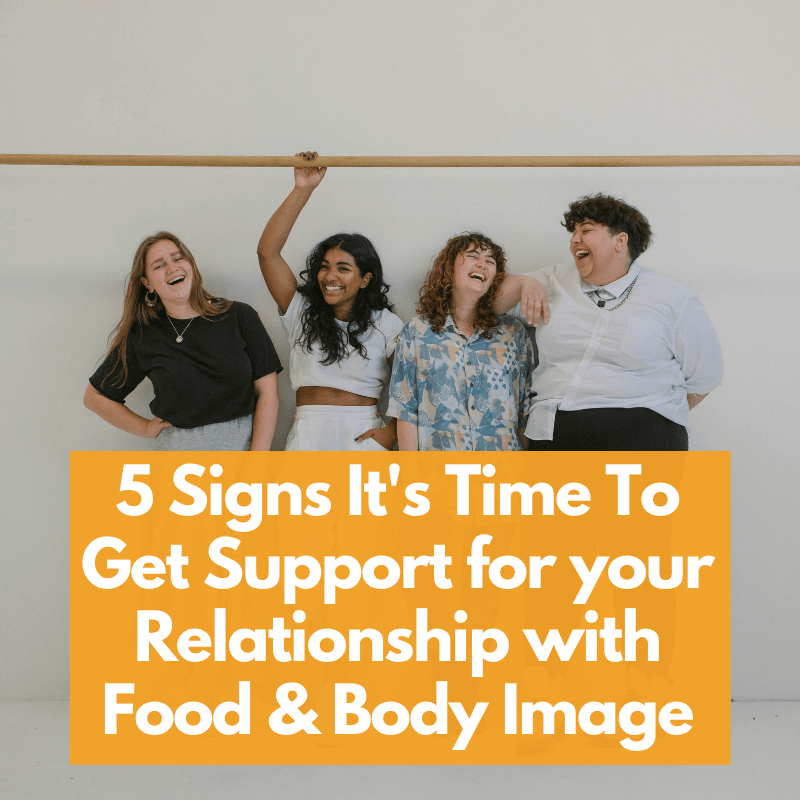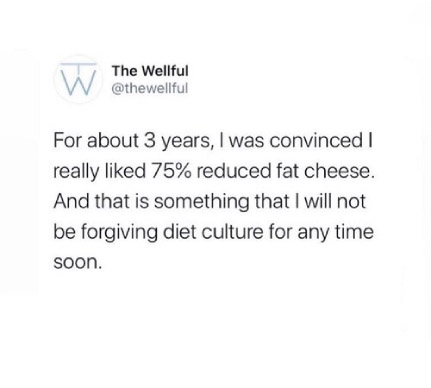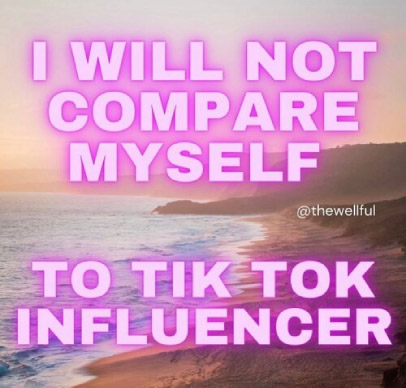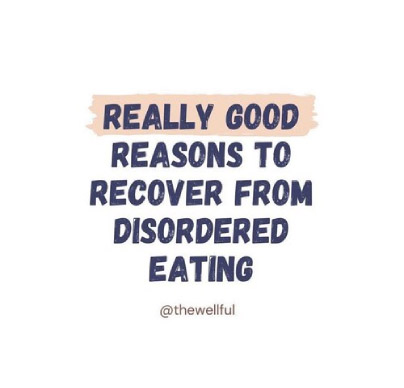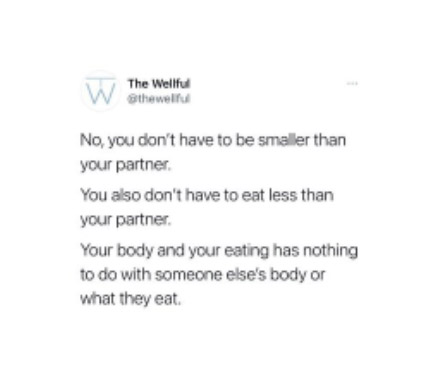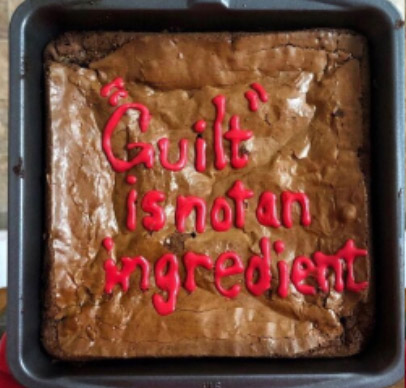Have you considered getting food and body image support? Every day we are bombarded with diet culture messages, but they impact us all differently. For some, these messages are annoying or they make us roll our eyes, but they don’t cause us to miss a beat. For others, these messages make us think about every bite of food we eat or how our body might look at every angle. If you fall into the latter category, we are here for you. If you don’t fall into the latter category, we are still here for you. And if you aren’t sure where your relationship with food and your body image lies, see how the following ideas relate or resonate with you.
But first, let me remind you:
You do not need to be “sick enough” or have a formal diagnosis in order to seek support!
1. Labeling food as “good/bad” or “healthy/unhealthy”
For many of us, these labels are ingrained in our minds. We have heard these categorizations our whole lives, but what do they really mean?
If…
these labels prevent you from eating the foods you enjoy
these labels cause unbearable amounts of guilt when these foods are consumed
you believe that you lack willpower or are less worthy of love or support when you eat these foods
It is time to seek support
2. Eating an unplanned meal or snack
Food is not just nourishment. It is a connection to our culture, history, friends, family, memories, and so much more. Sharing food is often seen as an act of love and generosity, or an activity to engage in with friends.
If…
Eating an unplanned meal or snack ruins your day
You feel as though you need to compensate for unplanned food (through exercise, change in diet, change in portion size, etc).
Eating foods where you don’t know all the ingredients causes extreme distress (unrelated to an allergy)
It is time to seek support
3. Choosing when and how to move your body
We know that movement of all kinds is health promoting.
A few of the many benefits include:
Improved sleep
Improved mood
Increased energy and sex drive
Improved self esteem and body image
Decreased risk of developing type 2 diabetes, heart disease, high blood pressure and/or cholesterol
Improved brain function and memory
BUT, what also matters in regards to the “health” of movement, is the why. Why are you choosing to move your body?
If…
You feel like you need to move to compensate for something you ate
You eat less or differently on days that you don’t move
Skipping a workout causes you to experience distress or increased anxiety
The forms of movement you engage in do not bring you joy
Every workout results in you feeling nauseous or entirely spent
You only choose to move in order to control the shape or size of your body
It is time to seek support
4. Picking an Outfit
We all have bad body image days. Sometimes we don’t feel our best in our skin, and that makes us human. But how we deal with this feeling is important.
If…
You skip outings with friends or family because of the way you feel about your body
You vow to not wear a crop top or that dress that’s been in your closet for a year until you lose X pounds
You wake up every morning and swear “the diet starts tomorrow”
You beat yourself up or engage in negative self-dialogue that prevents you from making choices than honor your health throughout the day
It is time to seek support
5. Looking at yourself in the mirror
We all own a mirror. It is normal to check our appearance before leaving the house, hopping on a zoom call or after we brush our teeth. The question here is: what do you do when you look in that mirror?
If….
You pick yourself apart and only notice parts of you that you don’t like
You pinch parts of your body that you wish looked different
You spend time measuring, assessing and/or comparing your body to somebody else’s or a version of your past self
You talk down to yourself and connect your worth to the size or shape of your body
It is time to seek support.
So much of what is normalized, and even praised, is unhealthy. That’s right! I used the word meaning the opposite of the goal…
If you spend all of your time limiting your intake, beating yourself up, or worrying that none of your choices are good enough all in the pursuit of health, then that is unhealthy.
There is nothing wrong with saying yes to any of these “what if’s.” We live in a weight-centric society that praises small bodies and weight loss, where weight gain is seen as a horrific event, and where food is labeled as indulgent or sinful.
If none of these ideas resonated with you, but you are questioning your relationship with food and your body, then it is also time to seek support. You do not need to fit into a box or receive a diagnosis in order to benefit from seeing a dietitian and/or therapist.
You have been taught and conditioned to question your body, size, and worth, but what if I told you that it didn’t need to stay that way? What if I told you that there are people who can help you break through these walls and bring the joy back to food and eating?
The truth is:
ALL bodies are worthy of respect
Our food choices do not dictate our worth
Movement is not meant to be punishment
A healthy diet is one where you don’t feel extreme stress or anxiety related to your food choices

